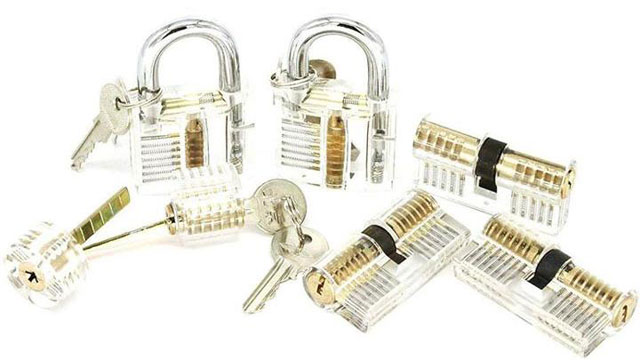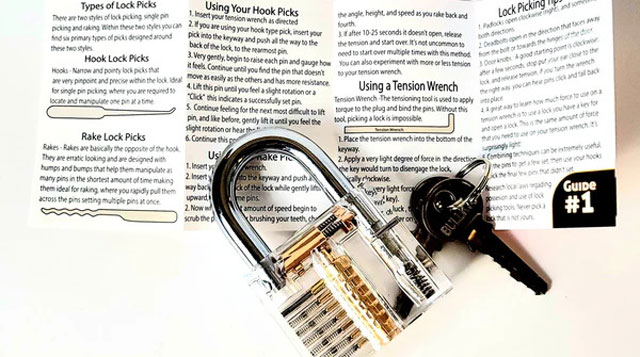Why Everyone Should Try a Practice Lock: Building Useful Life Skills
2025-05-13 09:38

Understanding How Locks Work
Most people use locks every day, yet few truly understand how they function. Practice locks, especially transparent or cutaway models, reveal the inner workings of pin tumblers and mechanisms. This basic understanding gives you greater confidence in evaluating the security of your home or office. For example, after using a practice lock, many people become more cautious about cheap padlocks or weak door locks. Knowledge breeds awareness—and awareness leads to smarter choices.
If you're looking to try one yourself, websites like barhomevip.com sell practice locks in a variety of styles, making it easy to get started.
A Hands-On Lesson in Patience and Focus
Picking a lock with a practice toolset is not about brute force; it's about precision and patience. Each pin must be gently lifted to the correct height to mimic the action of a key. This process requires concentration, steady hands, and trial-and-error. In today's fast-paced world, practicing lock picking provides a rare opportunity to slow down and stay fully engaged. It can be meditative and mentally rewarding, much like solving a puzzle or playing a musical instrument.
Building Problem-Solving and Dexterity Skills
Using a practice lock sharpens your critical thinking and hand-eye coordination. You begin to understand feedback through your fingers—how tension affects the pins, or how certain tools feel in the lock. Over time, you develop the ability to “read” a lock, adapting your method based on its response. These skills are transferable to many areas, from mechanical tasks to delicate repairs, making practice locks excellent tools for improving fine motor control and logical thinking.
A Safe and Legal Way to Learn Self-Reliance
Learning how to pick a lock can actually make you more responsible—not less. Ethical use of a practice lock means you understand the legal boundaries and respect privacy and property. That said, having this skill can be surprisingly helpful. Accidentally locked yourself out of a toolbox or a suitcase? Dropped the only key to a filing cabinet? In non-critical situations where calling a locksmith might be excessive, the ability to open a simple lock can save time and money.
Enhancing Security Awareness
Once you've picked a few locks yourself, you begin to see which locks are easier to open—and which ones are more secure. This personal experience gives you a critical eye for evaluating locks at home or when purchasing security products. You'll be less likely to be fooled by marketing and more likely to invest in truly secure hardware. In this sense, practice locks don't just teach you how to open locks—they teach you how to choose better ones.
An Educational Tool for All Ages
Practice locks can also be an engaging way to teach teenagers or older children about responsibility and mechanics. With the right supervision, it becomes an educational activity rather than a taboo subject. Many young people enjoy the challenge and learn valuable lessons about respecting tools, laws, and personal property.
Conclusion
Trying a practice lock isn't about becoming a professional locksmith or preparing for a spy mission. It's about gaining confidence, learning how things work, and acquiring a hands-on skill that is both practical and mentally enriching. Whether you're looking to improve focus, prepare for emergencies, or simply challenge yourself in a new way, a practice lock offers an accessible and rewarding experience. In a world that increasingly values digital skills, a little mechanical know-how goes a long way.
 Promotion: 5% Discount Code: 5vip
Promotion: 5% Discount Code: 5vip
